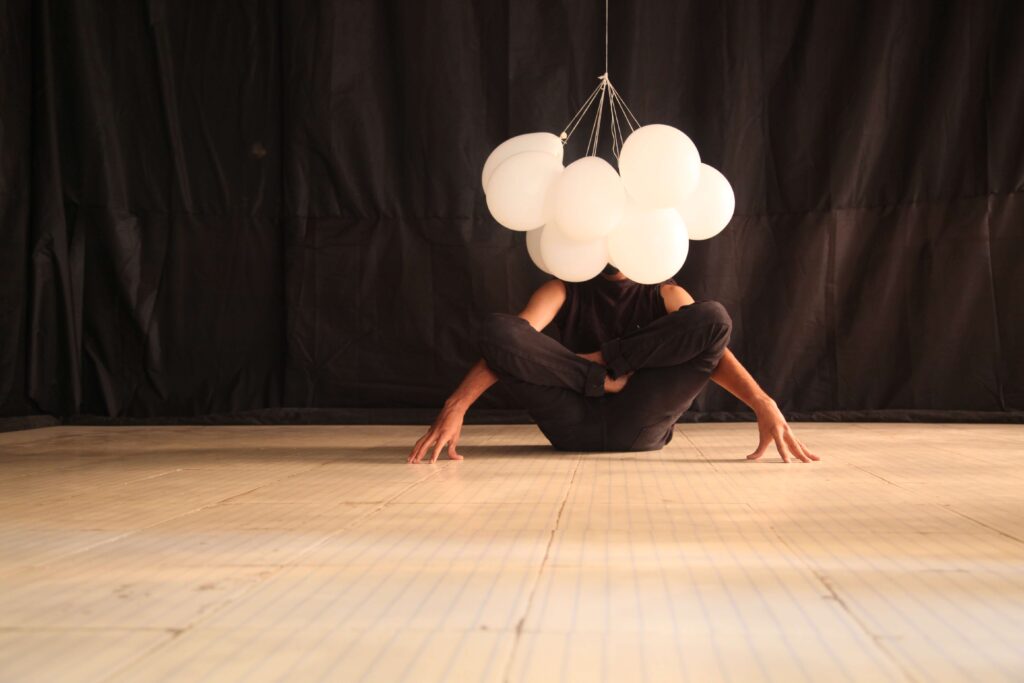The stage does not belong only to the actors. We find ourselves playing a role every day, especially in the workplace. And our role is not only made up of tasks and activities to be carried out, but constantly requires us to draw on our repertoire of interpersonal communication, emotion and creative thinking. Aspects on which theatre is based, that art that allows you to rediscover the taste of the game, that essential need of the human being. If you think about it, our neighbours across the Alps translate our “acting” with the word “jouer“, as well as “to play” across the Channel.
This possibility of releasing instinct and emotion, which theatre offers us, is increasingly necessary nowadays in the workplace. The simple grouping of the best technical talents does not automatically lead to the best production results. And theatre in this sense can help.

So what can arise from the juxtaposition between the theatre and the working world? It may seem like a risky link in our culture, given that it relates a rational, productive, profit-based system to an expressive, creative, imaginative system. Yet there are many possible meeting points: theatrical practices, tools and techniques can be successfully used within organizational systems.
To understand how the theatrical metaphor can be applied to the work-system, I will start from the four sentences that I heard most often during my first theatre course.
• “Stay with what is there”
At the theatre, every thought that passes through the head has equal dignity. Every emotion is fine as it is. Each breath takes on value. Everything stems from what happens at that precise moment. The only prohibition is not to suppress anything. Be present to the situation in which you are. Stay inside what’s going on.
Why not try it offstage? When you are present, without giving too much attention to what has happened before and without worrying about what will happen, the clearest prospects emerge. In that space there is the best ability to concentrate. When you are present you are in perfect harmony with the needs of other people. And it is from this harmony that every possible successful result is born. Being present in the working activity means opening all the receivers and giving yourself the opportunity to give importance to every decision and interpersonal relationship.
• “Change direction often”
At theatre, you will never be bored. Everything you do can be done without getting bored. If an action becomes repetitive and it is inertia to guide, the commandment is to change direction. We don’t know where to go, but we change direction and something new walking emerges. You always try not to do as you did the previous moment. You learn to trust your own directions, to let yourself be amazed by what happens.
This, in the workplace, means avoiding doing things as they have always been done. Trust changes, experiment with new ways. Especially those that do not exist and that are created only by walking on them.
• “Trust your body”
At theatre, everything starts from the body. At theatre, the body is worth more than the head. This is because the body is true: what happens in the body cannot be hidden, removed or changed. The body is always right and, in theatre, it is the main tool to use. Body language anticipates and goes beyond verbal expression, revealing the sensations that cannot be explained or attempted to conceal.
At work, trusting your body means giving importance to our feelings and exploiting them in their entirety. It means being able to bring what we feel on the same level as what we think, without losing important parts of our experience. At the same time it means learning to really listen to the other. Not only his words, but what he is and which he is inevitably offering us through his gaze, his posture, the tone of his voice and much more.
• “Keep the balance of space”
Stage is like a raft: people on it must arrange themselves in such a way as to maintain balance. The only way to do this is to be aware of your position and that of others. We must move by observing the movements of others, knowing them and understanding others’ intentions.
Why not consider your office as a large raft too?
In this case, creative collaboration requires each person to take on their role and thus contribute to the collective balance. It means that if one corner of the raft remains uncovered, someone runs at that point because of its own stability. It means that talents and skills complement each other. And it means also that the importance of the individual role serves and is emphasized by the potential of the whole group. It means being open and adaptable to changing situations. Because only if everyone moves harmoniously, the raft floats.
These and many others are the ideas and techniques that theatre can bring in everyday life, especially in the workplace. In general, its ability to be a 360 ° expressive channel that compels you to confront with yourself and to get involved in your own personal complexity is interesting. The invitation that the theatre offers us is to bring out and explore its most authentic and creative core, in order to manage it in interpersonal relationships and its emotional manifestations.